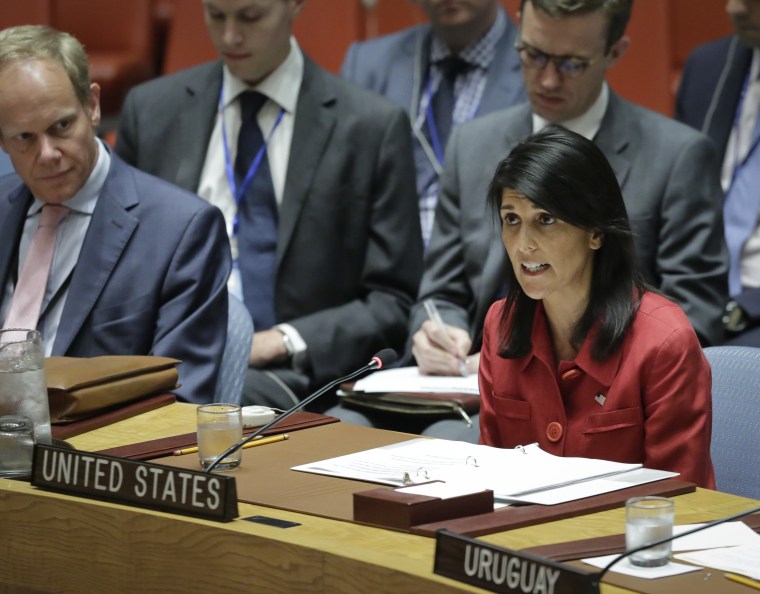One of these days, Donald Trump should probably have a chat with the top members of his foreign policy team. On Friday, for example, the president said "nobody really knows" whether Russia intervened in the American election, and a day later, Nikki Haley, the U.S. ambassador to the United Nations, said "everybody knows that Russia meddled in our elections."
Yesterday, it happened again when Haley tried to describe Trump's meeting with Russian President Vladimir Putin.
"What he did was bring up right away the election meddling, and he did that for a reason," Haley [told CNN's Dana Bash], referring to Russia's interference in the 2016 campaign. "One, he wanted ... to basically look him in the eye, let him know that: 'Yes, we know you meddled in our elections. Yes, we know you did it, and cut it out.'"
Soon after, Trump pointed in the opposite direction, pointing to Vladimir Putin's "vehement" denial of wrongdoing, which the president apparently accepts: he is, after all, ready to "move forward in working constructively with Russia."
Similarly, Secretary of State Rex Tillerson told reporters the other day that Trump and Putin did discuss the push in Congress for additional sanctions on Russia. And yet, there was the American president yesterday, declaring, "Sanctions were not discussed at my meeting with President Putin. Nothing will be done until the Ukrainian & Syrian problems are solved!"
The "nothing will be done" vow is clearly at odds with what 97 senators recently had to say on the subject, but it was also an example of the president publicly contradicting Tillerson on an important issue.
And if this sounds familiar, it's probably because Trump and his foreign policy team are regularly at odds.
As we discussed last month, Haley and the president often fail to stay on the same page. On U.S. policy towards Syria, for example, Haley’s stated line was largely the opposite of what we heard from other leading Trump administration officials. A month earlier, when the president dismissed the need for a two-state solution for Israelis and Palestinians, Haley said the exact opposite a day later, telling reporters, “We absolutely support a two-state solution.” Even Haley’s line on U.S. policy towards Venezuela also contradicted Trump's State Department.
And speaking of the State Department, it's sometimes easy to forget Trump and Tillerson are supposed to part of the same team.
The point here isn't to poke fun at the frequent contradictions. Rather, there's a serious policy dynamic taking shape: who speaks for the Trump administration's foreign policy? If someone in a foreign country -- friend or foe -- wants to know what the United States' position is on a major issue, who could answer with authority? The easily confused amateur president or the top officials in his administration whose answers routinely fail to match those of their boss?
